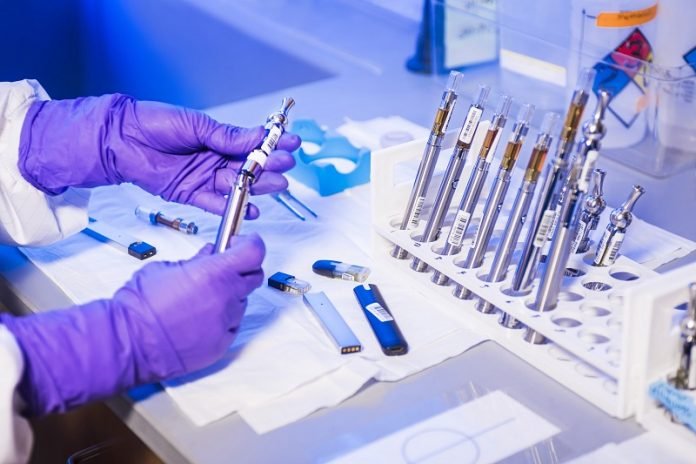
Some studies have suggested electronic cigarette, or EC, use may be a healthier alternative to cigarette smoking.
A University of California, Riverside, study shows this is far from the case.
The researchers report in the journal Toxics that switching from combustible cigarettes to ECs does not restore the nasal epithelium to that of a non-smoker.
Specifically, the researchers found the epithelium gene expression profiles of EC users do not revert to the typical epithelium gene expression profiles of non-smokers.
“Indeed, compared to non-smokers, the EC group showed molecular alterations in their gene expression profiles that are associated with cigarette smokers,” said Giovanna Pozuelos, the first author of the research paper who graduated earlier this year from UC Riverside with a doctoral degree in cell, molecular, and developmental biology.
“The EC group showed alteration of genes associated with an increase in oxidative stress, immune response, and keratinization, as well as evidence of ciliary dysfunction, and diminished ciliogenesis.”
The research team, led by Prue Talbot, a professor of cell biology, reports that alterations the team observed in the epithelium gene expression profiles of the EC users suggest that electronic cigarettes may interfere with the recovery of the respiratory epithelium of former smokers.
“ECs are often postulated as a healthier alternative to cigarette smoking,” said Talbot who advised Pozuelos on the study.
“Continual EC use, however, may contribute to airway epithelial damage and the progression of respiratory diseases, such as squamous metaplasia.”
Squamous metaplasia refers to benign changes in the epithelium — tissue that lines organs, such as the lungs, throat, and thyroid, and can also be found in the skin. Pozuelos explained that squamous metaplasia is observed in the lungs in response to toxic injury often caused by cigarette smoking.
“It is reversible, however, after smoking cessation,” she said.
“In our study molecular markers associated with squamous metaplasia were increased in EC users, suggesting ECs might interfere with the recovery of squamous metaplasia in former smokers. We also observed an increase of oxidative stress and inflammation, which may contribute to airway epithelial damage and progression of other respiratory diseases.”
The researchers collected nasal biopsies from three groups of participants and compared their epithelium gene expression readouts.
The groups were comprised of three former smokers who completely switched to second generation ECs for at least 6 months; three current tobacco cigarette smokers; and three non-smokers. The researchers then used bioinformatics to identify biological processes, cellular pathways, and diseases.
“Alterations in the gene expression profiles of the EC users suggest that electronic cigarettes may interfere with the recovery of the respiratory epithelium of former smokers,” Pozuelos said.
The study was funded by the National Institute on Drug Abuse, FDA Center for Tobacco Products, and the National Institutes of Health. The funders had no role in study design, data collection and analysis, decision to publish, or preparation of the manuscript.
The title of the research paper is “Transcriptomic Evidence That Switching from Tobacco to Electronic Cigarettes Does Not Reverse Damage to the Respiratory Epithelium.”
Written by Iqbal Pittalwala



